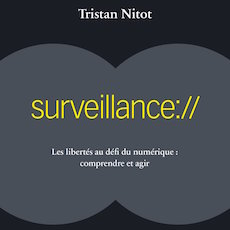My colleague Gen Kanai and John Lilly have pointed me to an interesting article on Wired: The New Socialism: Global Collectivist Society Is Coming Online.
Of course, the author is not really using the word socialism in the same way we use it to refer to Eastern Europe 30 years ago, and I'm not sure that resorting to such a loaded word is really helping in starting a discussion, because we have to clarify so many things before the conversation can start. However, there is indeed matter for an interesting discussion:
We're (...) applying digital socialism to a growing list of wishes—and occasionally to problems that the free market couldn't solve—to see if it works. So far, the results have been startling. At nearly every turn, the power of sharing, cooperation, collaboration, openness, free pricing, and transparency has proven to be more practical than we capitalists thought possible. Each time we try it, we find that the power of the new socialism is bigger than we imagined.
There are a couple key differences in the Eastern Europe socialism and this new collectivist society.
- the old socialism is a story used by the elite to dominate the people. On the other hand the new collectivism is something done on a daily basis by the people, without any authority trying to impose it, without necessarily giving it a name.
- the old socialism took place in the real world, ruled by the economy of things, while the new collectivism is taking place on line, ruled by the economy of ideas. This makes a huge difference, summed up by this sentence:
In the economy of things, sharing means dividing. In the economy of ideas, sharing means multiplying.
In short, this new digital collectivism may work where the old socialism failed, just because in the online world it's much easier to be generous and give things away as you're not deprived of them.
edit: Mozilla lives in this world where sharing means multiplying. When you understand this, you realize that the utopia of what we do (building software given away for free) suddenly makes a lot more sense.






3 réactions
1 De marcoos - 28/05/2009, 16:11
Just a side note... The system in the former Eastern block was Soviet communism, not socialism. The communists stole the name "socialism" from real non-totalitarian socialists, like the Polish Socialist Party of Piłsudski, who fought the Soviets in the year 1920. There's nothing bad about socialism itself, the ideology behind the PSOE party in Span or some factions of the U.S. Democratic Party.
2 De karl - 29/05/2009, 02:42
Ouch… /me slaps tristan with a big digital socialist trout.
> "the old socialism is a story used by the elite to dominate the people."
For someone who loves wikipedia, you should not make this mistake. Read http://en.wikipedia.org/wiki/Social...
Read http://en.wikipedia.org/wiki/Social...
Socialism has been created because of the power of one class of people who were controlling the means of production leading to an increase of their wealth when the majority was victim of pauperization and starvation. Socialism advocates *collective* and/or *state* ownership for redistributing the wealth. It has its own issues, but not the ones you are saying.
If you really want to define Mozilla as a metaphor of a political movement, you could make a long stretch and make a kind of association with Anarchism, specifically the Bakunin's one: Collectivist anarchism
Read http://en.wikipedia.org/wiki/Collec...
Ahlala Tristan
3 De Alex - 29/05/2009, 09:52
Very interesting point of view, as usual on the Standblog.
Tristan, when you write "Mozilla leaves", I hope you mean "Mozilla lives"!
Karl: As said Coluche, Capitalism is the domination of men by other men. Socialism is absolutely the other way round.